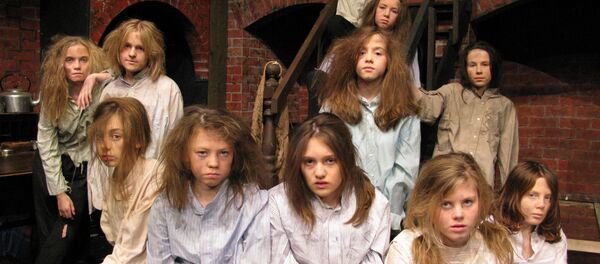Academics from Cass Business School, City University London and think tank, International Longevity Center-UK (ILC-UK), measured the difference between the number of people who died early in adulthood and those who survived well into old age, based on data from the Human Mortality Database.
Professor of statistics, Les Mayhew, and Dr David Smith from Cass Business School, looked at data from the 1870s onwards, comparing England and Wales with France and Italy.
NEW REPORT: An investigation into inequalities in adult lifespan https://t.co/lLlkHz963I @cassbusiness @ilcuk
— Int Longevity Centre (@ILCUK) May 3, 2016
"We found that since 1990s the lifespan inequalities in men have actually worsened in England and Wales. This is partly due to some men now living to exceptionally old ages and in many cases equaling women but at the other end of the distribution there has been a lack of progress," Professor Mayhew said.
When did employment become a ticket to #foodstamps and housing assistance? Shouldn't it be a ticket out of #poverty? pic.twitter.com/w2M5JTtTlG
— Robin Hood Tax (@RobinHoodTax) May 2, 2016
Mind The Gap
Five percent of 30 year old men classed as rich are living on average to 96 years old — which is 33 years longer than the poorest ten percent of men involved in the study who were expected to die in their 60s.
The report, 'An Investigation into Inequalities in Adult Lifespan' found poorer men are more likely to make damaging lifestyle choices.
"The research blames the widening disparity of poor life style choices rather than ambient risks which were prevalent in the first half of the 20th Century. Key amongst these is smoking, drinking and poor diet — choices that are more likely to be made by the poorest in society."
#Poverty means making daily sacrifices to get by. The choice should never be between paying for groceries or rent. pic.twitter.com/CrfLTHDZI5
— The Salvation Army (@salvationarmy) April 30, 2016
The research also found that a previous government target in 2003 to improve the life expectancies in the best and worse areas in England and Wales was not only missed — but had got worse.
"Preventing inequalities in ill health and disability must be a priority for policy action," Baroness Sally Greengross, chief executive of ILC-UK said.
"This very timely report highlights, how, despite huge increases in life expectancy, the gap between rich and poor is increasing for the first time since the 1870s. This trend is particularly worrying for society and policymakers must do more to begin to narrow this gap again."



